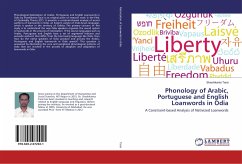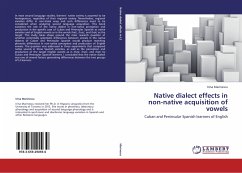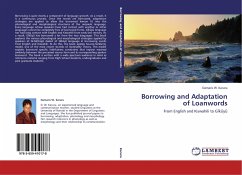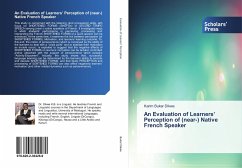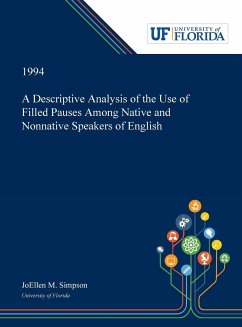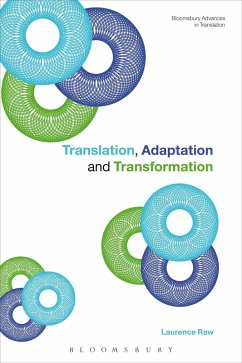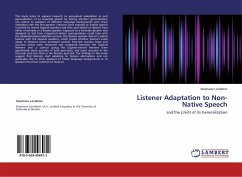
Listener Adaptation to Non-Native Speech
and the Limits of its Generalization
Versandkostenfrei!
Versandfertig in 6-10 Tagen
16,99 €
inkl. MwSt.

PAYBACK Punkte
8 °P sammeln!
This study looks to expand research on perceptual adaptation to and generalization of L2 accented speech by testing whether generalization can extend to speakers of different language backgrounds who share similarities with the first speaker. Listeners were exposed to English speech recorded by several Gujarati speakers and then post-tested on speech from either a Kannada or a Russian speaker. Exposure to a Kannada speaker was designed to test how categorical dialect representation could help with the adaptation/generalization process. The Russian speaker shared a salient feature with the Guja...
This study looks to expand research on perceptual adaptation to and generalization of L2 accented speech by testing whether generalization can extend to speakers of different language backgrounds who share similarities with the first speaker. Listeners were exposed to English speech recorded by several Gujarati speakers and then post-tested on speech from either a Kannada or a Russian speaker. Exposure to a Kannada speaker was designed to test how categorical dialect representation could help with the adaptation/generalization process. The Russian speaker shared a salient feature with the Gujarati speakers, which tested whether listeners could adapt to features across unrelated accents. Post-test reaction times and accuracy scores were measured and compared between the Gujarati listeners and a control group. The Gujarati-trained listeners were significantly more accurate in both post-tests, and more accurate in the Kannada post-test than in the Russian post-test. The findings in this study suggest that listeners start adapting to feature alternations and can generalize this to other speakers of similar language backgrounds or to speakers that have common L2 features.



